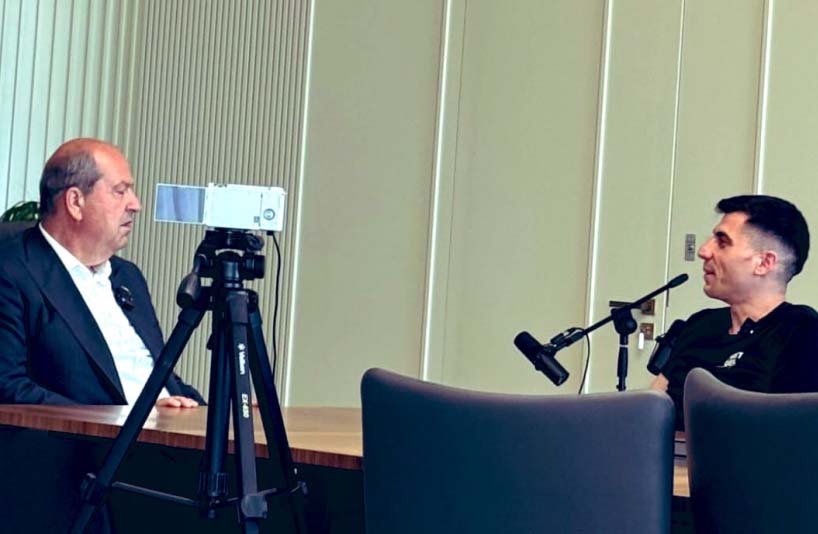The government has criticised MEP Fidias Panayiotou for giving an interview to the Turkish Cypriot leader Ersin Tatar, saying the move risks helping the narrative of the authorities in the north.
A tsunami of reactions and harsh criticism has been triggered by Panayiotou’s decision. Political parties have joined the condemnation, with Diko stating Panayiotou is “a pawn of Turkish propaganda”, Edek saying he is “committing sacrilege against the country”, and Dipa adding that “his actions provide recognition to the illegal entity in the occupied areas”.
Speaking at the presidential palace, government spokesman Konstantinos Letymbiotis said on Wednesday it was “regrettable” that an MEP elected by the Cypriot people should take actions that, willingly or not, are exploited by the “occupation regime”.
“It is regrettable that a member of the European Parliament, elected by the Cypriot people to represent them, proceeds with actions which, either willingly or unwillingly, are exploited by the occupation entity to promote its unacceptable narrative,” said Letymbiotis.
The government’s concern, Letymbiotis said, was not just about the interview itself which was held on Tuesday, but also the location where it was conducted. Although he did not name the place, his comments hinted at sensitivities over visiting sites in the north of the island.
Letymbiotis argued that Panayiotou’s actions risk being used as “propaganda tools” by the Turkish Cypriot authorities. He warned that the move violates United Nations security council resolutions and could damage Cyprus’ position internationally.
“Already since Tuesday, we are witnessing attempts by the pseudo-state to exploit this action,” Letymbiotis said.
“Even if unintentionally, this action serves as a propaganda tool for the other side.”
Letymbiotis stressed that all officials, especially elected ones, should act with national interest in mind.
“Every public act carries political weight and consequences,” he said. He added that if a similar action had been taken by an MEP from another country, Cyprus would have lodged strong diplomatic protests.
“It is good to keep in mind that we all, regardless of political origin, must act with the understanding that the Cyprus issue is a national matter. Especially our elected officials must remember that every public act carries political weight and has an impact. We must act soberly and with full awareness of all our actions,” Letymbiotis said.
Letymbiotis confirmed that planning continues for a multilateral conference on Cyprus, which is expected to take place in the second half of July. Turkish Cypriot leader Ersin Tatar has claimed the meeting is set for July 16 and 17. However, Letymbiotis said no official invitations have yet been issued by the United Nations.
“As we have repeatedly said in recent days, we respect the UN’s procedures,” he said.
Diko, in a detailed statement, expressed regret that since his election, Panayiotou “continues to feed Turkish diplomacy and Turkish media with material to promote their own unacceptable positions on the Cyprus issue”. The party accused Panayiotou of being exploited due to “ignorance, naivety and lack of knowledge” and said he has “turned into a pawn and tool of Turkish diplomacy and Turkish media”.
Edek issued its own statement, declaring that Panayiotou “has crossed the line” and moved “from the idea of learning only half the history to serving Turkish propaganda, especially its worst aspect, the effort by Turkey to have the occupied part of our homeland recognised as a state.”
Edek rejected Panayiotou’s possible defence of ignorance, stating, “He cannot not know.” The party accused Panayiotou of consciously “committing sacrilege against the country that elected him as MEP, against all our compatriots who lost everything due to the Turkish invasion and still suffer, against those who shed their blood on the lands the MEP walked upon to supposedly conduct an interview with the representative of the occupation.”
Letymbiotis concluded by urging unity among Cypriots on the national issue.
“This matter goes beyond individual choices,” he said.
“It touches the very core of our national sensitivities.”






Click here to change your cookie preferences